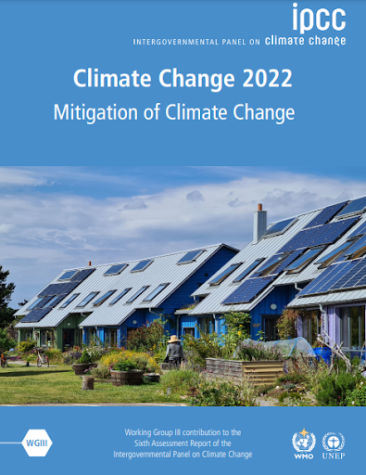The IPCC’s Latest Report on How to Deal With Climate Change

The Intergovernmental Panel on Climate Change (IPCC) released its newest report on April 4, 2022. The IPCC’s reports establish what we know about the state of climate change. They are designed to inform governments, scientists, and the public.
The goal of the IPCC, according to its website, is to “provide policymakers with regular scientific assessments on climate change, its implications and potential future risks, as well as to put forward adaptation and mitigation options.”
The IPCC does not produce new information on climate change, but rather compiles available data. These reports come out every six to seven years, and are put together by hundreds of scientists, experts and researchers of different disciplines from around the world.
Governments can make suggestions to the authors, but they cannot unilaterally make additions to the report. However, the Summary for Policymakers section of the report has to be approved by governments in its entirety.
Although there is rigorous debate among authors and governmental representatives over the language of the report, nothing new can be added that is not supported by scientific evidence.
There are three working groups responsible for covering different aspects of climate change: (1) the physical science basis; (2) impacts, adaptation, and vulnerability; and (3) the mitigation of climate change.
Climate change mitigation is action that is designed to limit the amount of greenhouse gas emissions in our atmosphere. The objective of mitigation is to maintain a planet in which we and the many ecosystems that live on Earth can survive.
The Working Group Three mitigation report illustrates how fossil fuel infrastructure will continue to intensify and worsen climate change. The World Resources Institute says the most effective method to avoid the worst case scenario of carbon emissions is limiting our reliance on fossil fuels.
Altering people’s lifestyles, especially the wealthiest people in the world, is also important. According to Dr. Leila Niamir, a contributing scientist and author of the Working Group Three report, “With policy support, behaviour and lifestyle changes – mostly by individuals with high socioeconomic status – the world can rapidly reduce emissions, and further reductions are possible with improved infrastructure design and access.”
In another key finding of the report from Working Group Three, preventing deforestation is important in reducing emissions. The Summary for Policymakers shows that policies which decrease deforestation assist in lowering, removing, and avoiding emissions.
Cooperation from national and local governments, businesses, and local communities is essential for mitigation. According to the Summary for Policymakers part of the report, many people can influence climate change mitigation, including political figures, actors, businesses, the media, youth, indigenous people, and local communities.
What can you do as an individual? Continue to educate yourself about climate change. Hearing about it all the time when you are unaware of the crisis can get repetitive. However, it is important to know about this issue because it affects everyone on the planet.
While we don’t necessarily witness the effects of climate change all the time, what we do matters. Climate change has already wreaked havoc in many places in the United States and around the world. Learning about climate change and working together to solve it is essential for our planet.





